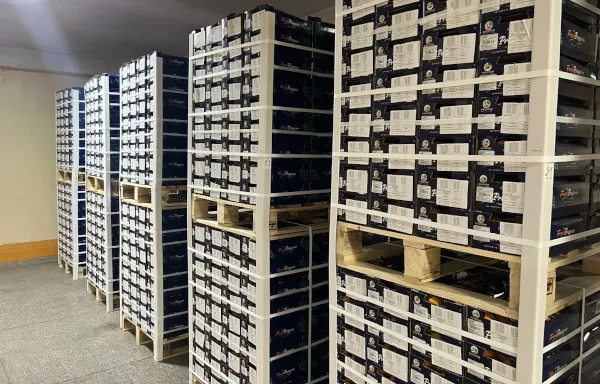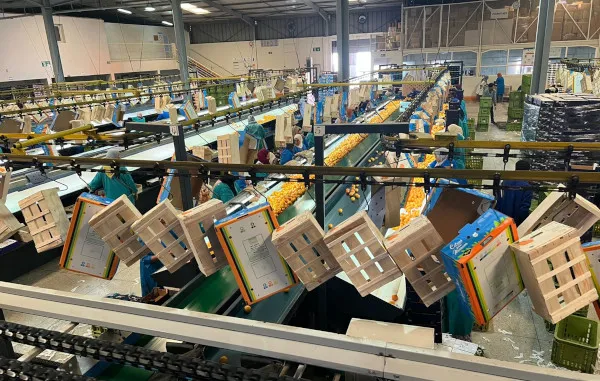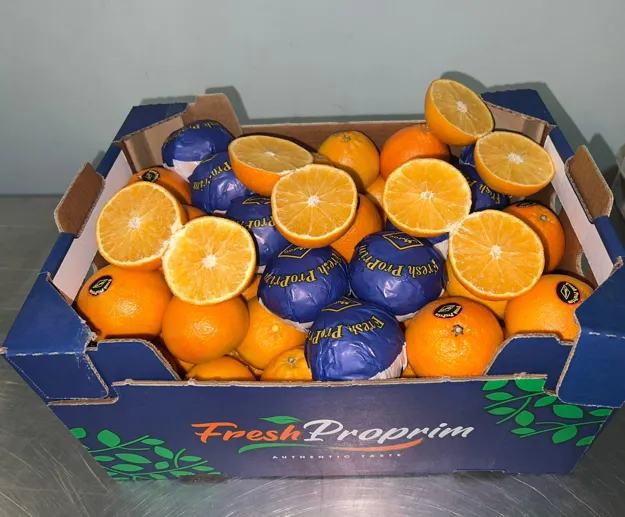The combination of several factors is leading to a difficult season for Moroccan citrus. Mr. Mouad Hfa, production manager at the Moroccan producer and exporter Pro Prim, located in the Souss and Chichawa regions, has forecast a 30-40% drop in volumes compared to the previous season.

Mr. Mouad explains: "This decrease is due first of all to the seasonal cycle. Last year the exploitation was intensive, and therefore the fruit trees are decreasing in yield. We reduce the number of fruits per tree in order to keep a good caliber, a faster harvest, and to allow the tree a period of digestive rest."
Another reason for the decrease in volume is the increase in input costs. Mr. Mouad said: "The cost of fertilizer has tripled this year. I know farmers who have had to abandon part of their programs because it is no longer profitable."
The case of the Nadorcott variety stands out. The producer expects a drop in volume of 30-40%: "Some producers have experienced a decline of up to 60%, but we have made a lot of effort and technicality to contain the effect of the drought. The volume has certainly decreased but we will keep a good quality". This will result in higher prices for clementines, which will be reserved for the highest bidder - probably American customers, according to Mr. Mouad.

The biggest challenge faced by growers is the climate situation. "A severe chergui (a hot and dry wind in Morocco) hit during the blooming period and damaged a significant amount of the crop," said Mr. Mouad. "Hydric stress has become a problem that no one can deny nor escape. We're digging 300 meters deep to find water. Of course, there are regions more affected than others".
As for the market, the exporter does business with Russia, Canada, and European countries, and recently the Middle East. Mr. Mouad said that Pro Prim is planning to target the Far East, Indonesia and China, and to enter new European markets where they have not yet exported, such as Germany.
Moroccan citrus fruits are trying to cope with fierce competition from Turkey and Egypt. "Egyptian growers enjoy lower costs, including labor, and are subsidized by the government, not to mention the abundance of water in Egypt". Some Moroccan producers are therefore in a race against time to liquidate their production before Egyptian producers enter the global market.
 The exporter is fighting to maintain its business in a difficult environment of rising costs and weather constraints. "In all plantations as well as in the packing station, we have transitioned to solar energy," Mr. Mouad said. "We are also making a lot of efforts in technicality and craftsmanship to ensure good quality products, and to compensate for the decline in volumes."
The exporter is fighting to maintain its business in a difficult environment of rising costs and weather constraints. "In all plantations as well as in the packing station, we have transitioned to solar energy," Mr. Mouad said. "We are also making a lot of efforts in technicality and craftsmanship to ensure good quality products, and to compensate for the decline in volumes."
For more information:
Mr. Mouad Hfa
Pro Prim
Tel: +212 615-545159
Email: m.hfa@proprim.ma
